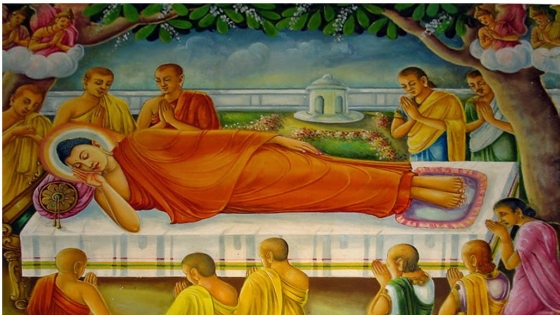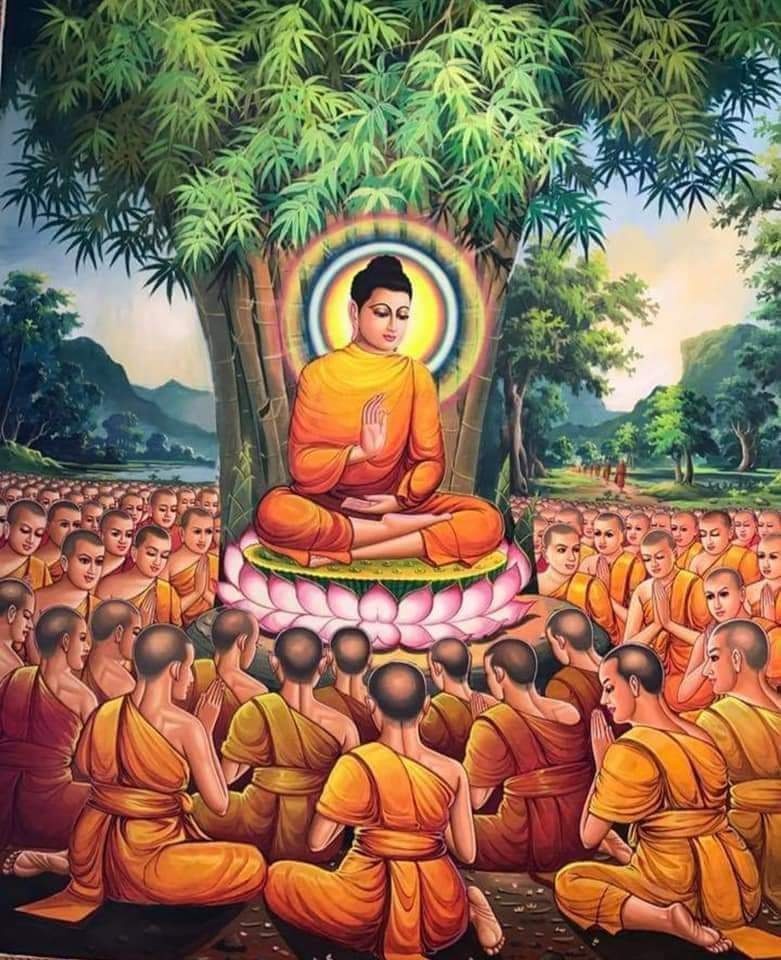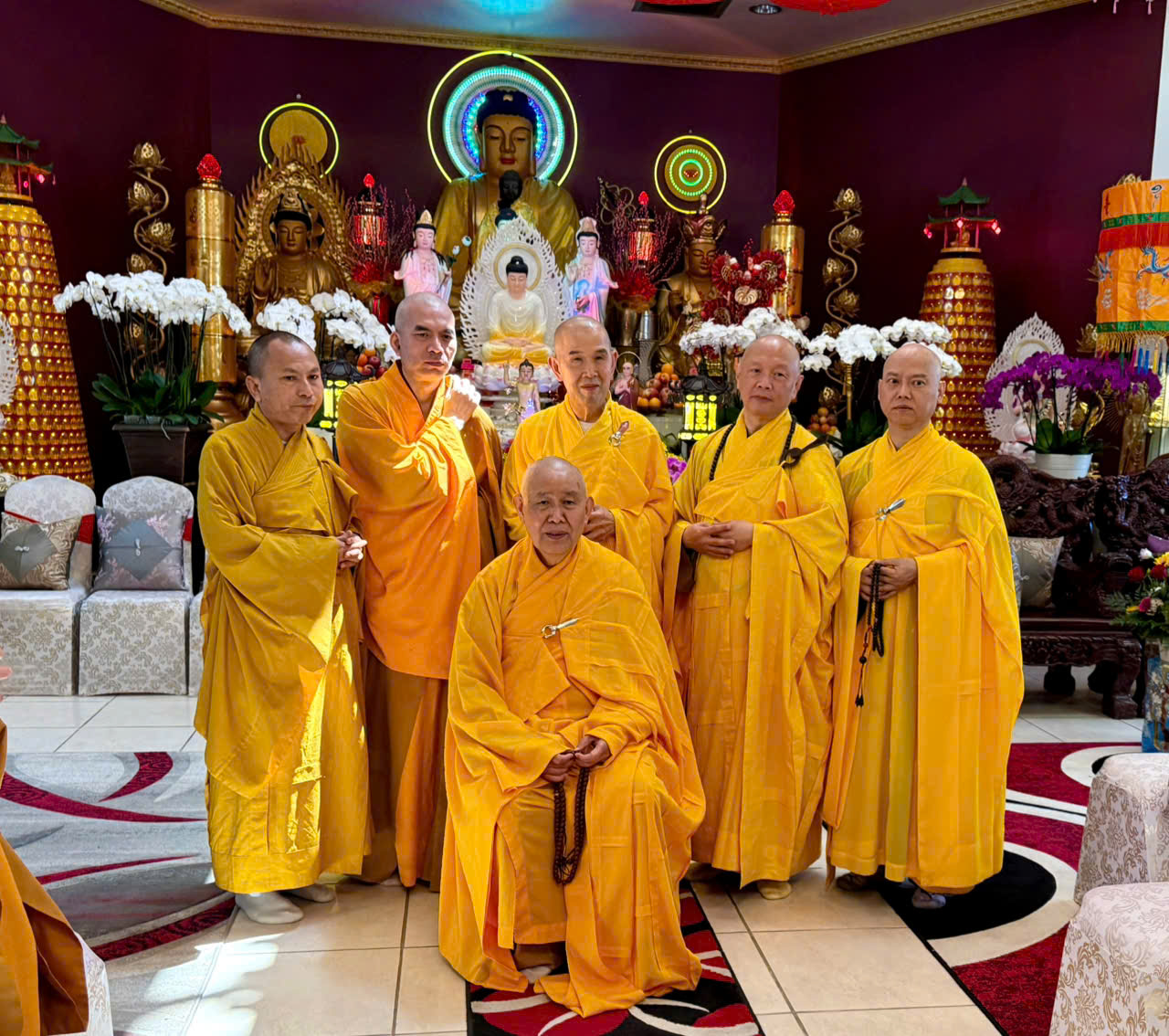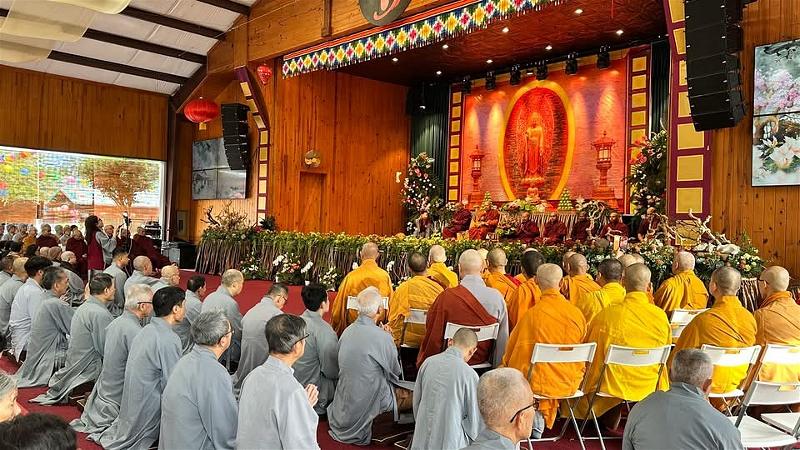
(Sanskrit = S.) Nirvana or (Pali = P.) Nibbana
Nir, its prefix means no, non, not; vana, its suffix means the forest of defilements. Thus, Nirvana means true or supreme happiness without all kinds of defilements.
Nirvana has four kinds:
1. Nirvana in the present life:
Having attained this Nirvana, an enlightened one has the ability to end all afflictions when his or her physical body is still alive in life.
2. Nirvana in the future life:
It means Nirvana continues to exist in new lives in another realm. Having attained this Nirvana, the enlightened one ended all afflictions of leakages and no longer carries this physical body but he/ she still exists in another realm.
3. Nirvana Self-Nature:
Regardless of class, color, and race, Nirvana self-nature or Buddha-nature is still inherent in living beings, never loses.
Whether the Buddha, Bodhisattvas, holy monastics, or sentient beings, Nirvana self-nature or Buddha-nature in them are the same nature. Nirvana self-nature or Buddha-nature in them is different because of cultivation, doing good, thinking good, saying good of them each, and vice versa.
To the Buddha, Nirvana self-nature or Buddha nature can be 100 percent; to Bodhisattvas, Nirvana self-nature or Buddha nature can be 80 or 90 percent; to living beings, Nirvana self-nature or Buddha nature can be 5, 10, 20 percent, etc.
Depending on the cultivation and practice of each person, Nirvana self-nature or Buddha-nature in him or in her can shine like the light of the Full Moon, Half-Moon, or the crescent Moon.
4. Nirvana without attachment:
Ending all afflictions, realizing this Nirvana, the enlightened person is engaged in serving, saving people, and helping life, he/she does not get attached to and cling to what he/she does for other people.
Because of the vow of power, the Buddha, Bodhisattvas, holy monastics were born in the world to save sentient beings. When they arrive at a place to have completed the tasks of teaching and saving living beings, then they come and go freely without obstacle and attachment to the giver, the receiver, and the things given.
On the contrary, because of karma of power, one gives birth to somewhere, for example, in places of hunger and thirst, a lack of food, the lack of clothing, that of drinking water, and that of electricity, etc. One works to save people, but one still sees the givers, receivers, and the things given.
When realizing Nirvana without attachment, the enlightened One benefits oneself and others so much, but he or she will never see the helper, the one to be helped, the place to be helped, and things to be given.
A person who realizes Nirvana is like a tortoise walking on the ground seeing grass, trees, flowers, leaves. The tortoise lives both in the water and on the shore, and it knows what is in the water and what is on the shore happening.
On the contrary, a person who has not realized Nirvana yet is like a fish living in the water has never been ashore, it has never known what happens on the ground at all.
The understanding of the fish in the water, the tortoise can know, but the understanding of the tortoise on the ground, the fish cannot imagine.
Likewise, the realization of Nirvana the enlightened people can feel, but human beings cannot feel it, because they still have many defilements, greed, anger, delusion, ignorance, wrong view, ignorance, etc.
A person who realizes Nirvana is like a person who drinks hot and cold water for himself or herself to know. Those who have not drunk hot or cold water yet themselves cannot feel hot or cold water.





















